The Techniques we use to Spot
Major Macro-Fundamental Trades
Before They Happen
*And turn those opportunities into profitable swing trades and day trades*
*Purchase your accelerator programme and start learning immediately.*
*And turn those opportunities into profitable swing trades and day trades*
*Purchase your accelerator programme and start learning immediately.*
To help us answer this question – let’s talk about Michael Burry (of Big Short fame). He is at it again with another prediction. (As of August 2023)
Not even a prediction – he has put a massive bet on the US stock market tanking.
According to Burry’s 13F report, he bought 20K SPY puts and 20K QQQ puts, basically a sizeable bet that the stock market would catch a wobble.
You see, he believes that the fundamentals of the US economy (as of August 2023) point to a steep drop right around the corner.
Like persistently high inflation…
Massive debt…
Quickly rising interest rates…
Dr. Burry is engaging in a process called fundamental analysis.
Fundamental analysis is the ability to spot key flaws in a company, commodity or currency when everyone else thinks life is good.
Or the ability to see real value when price has dropped, everyone is panicking and there is blood in the streets.
It’s like studying a mid-sized bank in depth and realizing that their whole business model is based on interest rates staying low.
If interest rates rise – the bank is done.
So you notice that the Federal reserve is raising rates at an unprecedented rate.
And so, you put a few small short positions on a couple banks no one has heard of called Silicon Valley Bank, and First Republic Bank.
Days later they crash and you’ve made a fortune.
Or you’ve been carefully studying monetary policy from the European Central Bank.
You realize they are about to print a boatload of money to save their economy from a downturn.
That means their currency will be less valuable.
So you bet against the EUR and in a few days make enough returns for that quarter.
Or you’ve decided that you want a quick in-and-out day trade and you’ve been studying the pound.
You know that the market has been focused on inflation as a key fundamental driver and that we haven’t gotten a miss in quite a while.
The news comes out: It’s a significant miss causing the pound to fall and you modestly leverage up on a position because the fundamentals have changed.
150 pips in a couple hours.
At this point you might have a question:
“Arno – even if I could find these opportunities regularly, it’s not that easy. The timing of the fundamentals is really challenging.
When do I get in? How long do I hold?
Didn’t Michael Burry have to sit through weeks of drawdown when the price went against his position?
He almost lost everything!”
It’s true – when you are a large investment fund, timing the fundamentals can be difficult.
But strangely, smaller traders have a unique edge on timing that Hedge funds can’t participate in.
You have one significant advantage over the billion dollar hedge funds.
And you might have just overlooked it.
True, they have access to the best tools, top level analysts and close connections. Not to mention, powerful people who whisper trade ideas to them over glasses of bourbon.
But the problem is: They need to deploy billions of dollars on a single trade.
So if news breaks and the fundamental picture changes – they can’t just jump into the market with a ten billion dollar order.
The order wouldn’t get filled. They won’t be able to find someone else to take the other side of the trade.
This is why Michael Burry of “The Big Short” was sweating for weeks as the price went against him and he nearly lost everything.
He had to first find a fundamental opportunity to trade and then build a position against that asset over time hoping that the market would finally wake up to the same terrible realization about subprime loans.
If you are only trading millions and not billions, you have a unique opportunity.
You can wait until the news breaks and the fundamental picture shifts and then trade out of that event.
Some of the easiest money to make is trading out of major fundamental-shifting news events.
Now you might be thinking: “Why would I trade out of an event? The move already happened. I’ve lost most of my opportunity to make pips.”
But consider a trade on the pound that we took just a few weeks ago. We carefully spotted this potential days before the event.
We knew inflation was a huge fundamental driver for the UK economy and we hadn’t had a miss in quite some time.
The news broke and took everyone by surprise. The pound continued to fall a hundred pips after the event.
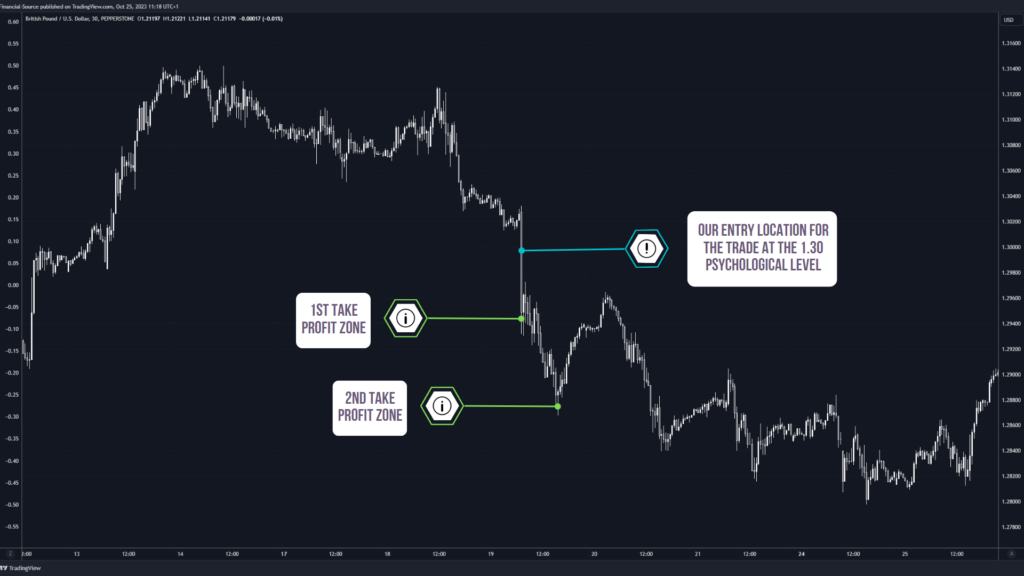
The blue line represents where I and many Financial Source subscribers got into the trade.
So the key to timing fundamental trades is to wait until there is complete certainty that the underlying fundamentals have changed and then jump into a trade.
You might ask again: So then why doesn’t the market react instantly? If information is near instant and the market is supposedly efficient, why does it take time for the price to fall?
One of the reasons is because large institutions, funds and companies can’t just liquidate their position instantaneously.
They are too big and wouldn’t get filled or wouldn’t find enough liquidity on the other side of their trades. Not to mention, not every institution is a fund that can instantly push a sell button.
Many companies with pound exposure will be much slower to react.
This gives us the perfect window of opportunity for a high-probability trade.
But if you are trading out of a fundamental shift you have another timing advantage.
Technical analysis will actually work for you.
See the only reason technical levels hold is because traders have a fundamental reason to lean on those levels and use them to get into trades and take profit.
If you are trading technical blindly, how do you know when technicals to buy or sell from?
Why do you think one level will hold as opposed to another?
And then if you think one level will hold – what happens when you move up time frames and all your moving averages change. Or the support and resistance levels change as you move up time frames?
How do you know which one to pick?
The reason price can come up to a major resistance level that should hold and then smash right through is because professional traders didn’t want to be selling using that technical level – they want to be buying because they understood the fundamental reason behind the move.
But if you are trading out of a major fundamental shift you have another timing advantage.
Most of you might not be able to work remotely and catch these moves sitting at your desk.
But this is where the fundamentals work in your favor.
Contrary to popular belief, swing trading out of fundamental events can be just as good as day trading.
Why?
Because technical analysis will actually work when it is informed by the fundamentals.
Let’s consider our example of the CPI report that we referenced earlier. Let’s say you missed the event completely.
As you may remember, the first thing the GBP/USD did is smash through the 1.3 handle which close followers of support and resistance would say is a strong area of support.
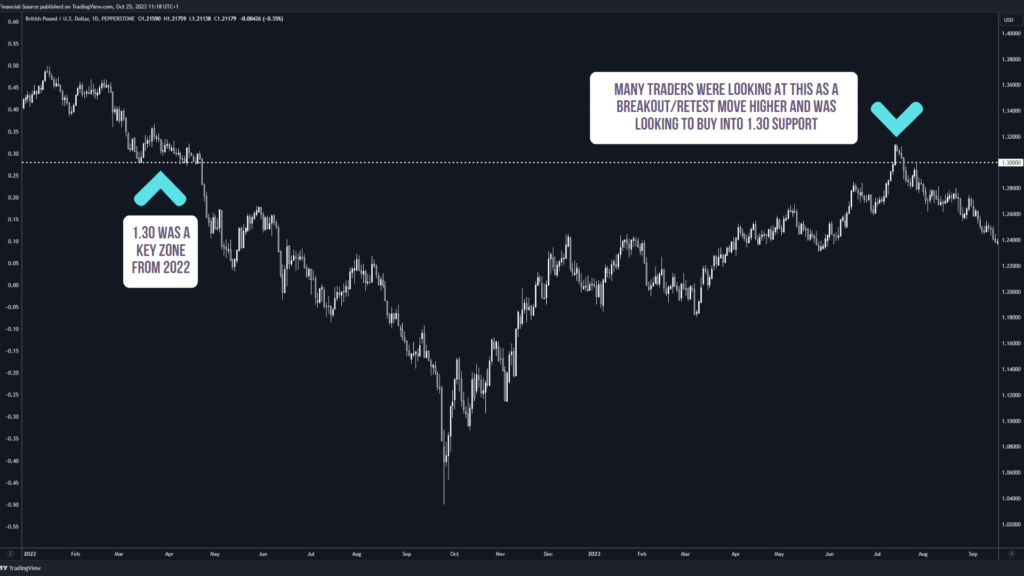
Remember we got in short right around the 1.3 handle even though technically this was an area that we should be cautious about.
We knew there was a fundamental reason to go lower and so it didn’t matter.
In fact, at the time our analyst Arno mentioned via video to our subscribers that he would hold this trade with leverage as price continued to break support levels.
But what if you were away from your desk?
What if you were on the west coast in the US and missed that whole move. Let’s say you just learned of all the events after you came home from work.
When you zoom out to the 4 hour chart you’ll notice the pound continued to fall – influenced in part by that one fundamental shift.
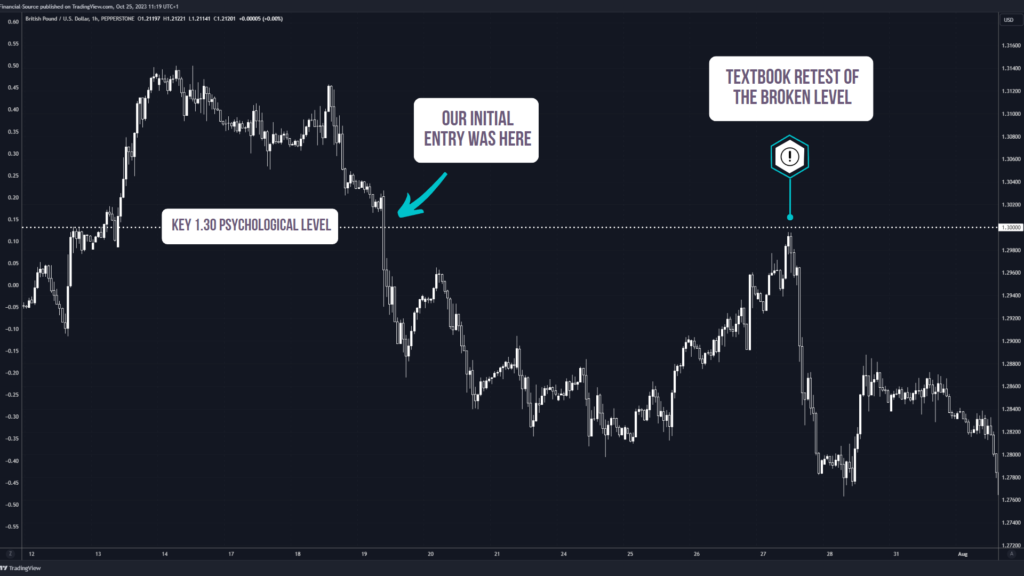
We can use technical analysis and look to short the pound as the entire market leans on technical analysis and moves lower.
The 1.3 handle now acts as an ideal point of resistance to short on a swing trade basis.
This is what we do at Financial Source every day.
We help traders spot macro fundamental opportunities every day and turn them into profitable day trades and swing trades.
I want to share with you our macro fundamental accelerator because I know there is nothing like on the market and if you are anything like the floundering retail trader that I was – I know this program will change your trading life.
Here’s what you will receive:

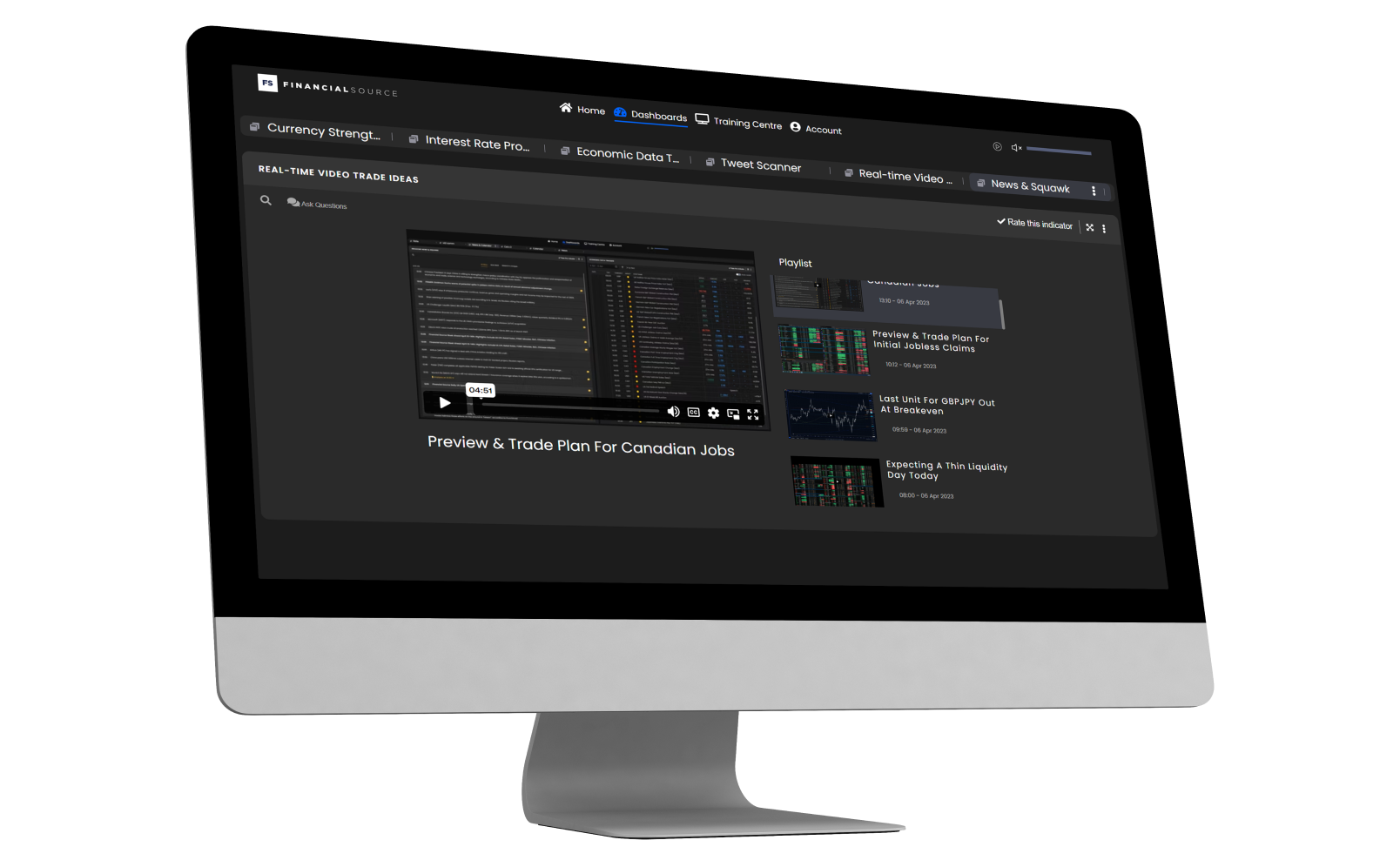
Published through the EU/US sessions as news breaks and sentiment changes. Includes personalised Q&A.
Learn by following as we generate and execute macro trade ideas as markets move.
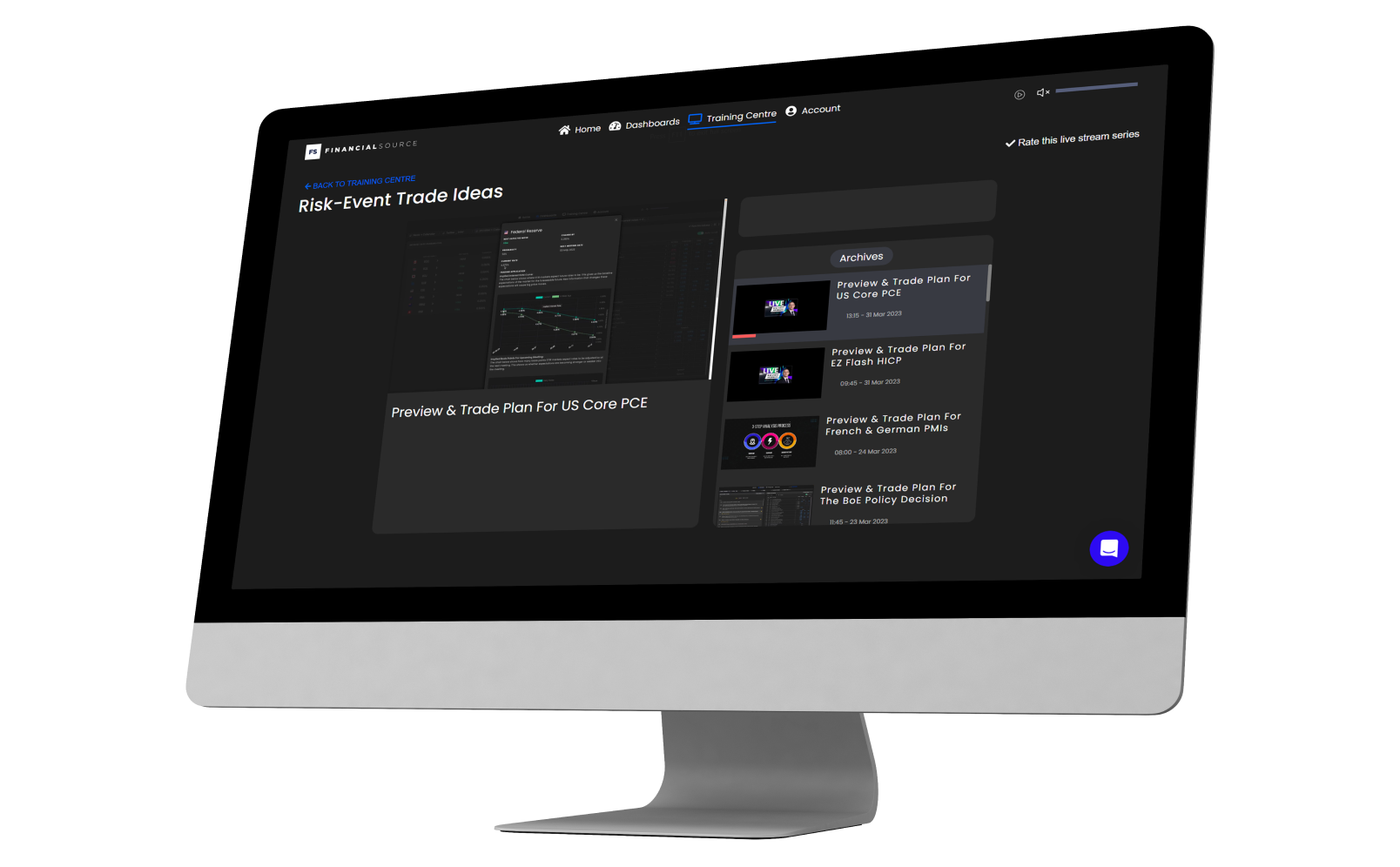
Learn how to trade the economic calendar through real-time guidance. We share specific trading scenarios and guide you as they play out.
Type your questions and get replies to your questions live during the presentation.
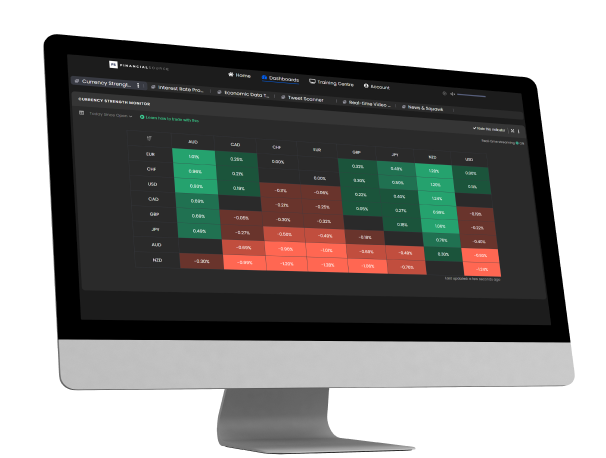
Breaking News Headlines. Interest Rate Probability Tracker. Professional Economic Calendar. Currency Strength Monitor.
These indicators help you track market expectations and react quickly to changing sentiment.
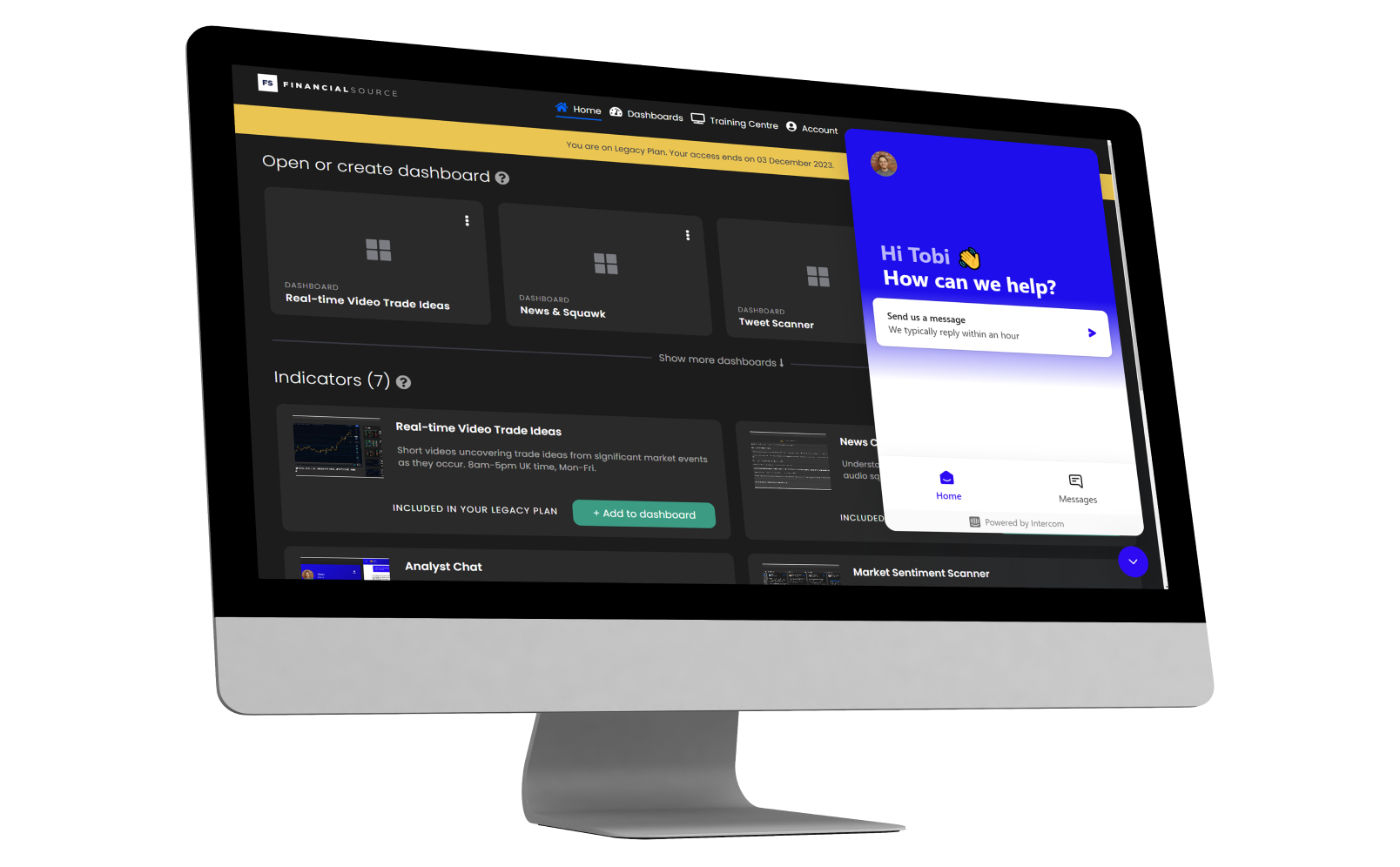
Receive personal feedback on your macro trade ideas as the session plays out, via our instant chat feature.
Chat to our macro trading experts in a private one on one setting.
Buy the accelerator and start your transformation today.
Our products and commentary provides general advice that do not take into account your personal objectives, financial situation or needs. The content of this website must not be construed as personal advice.